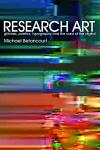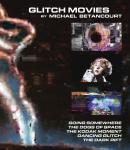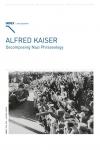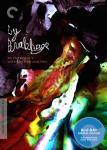“a blueprint for critical resistance and aesthetic defiance in the face of digital capitalism and a rising new age” — Laila Shereen Sakr/ VJ Um Amel
Fear of the ‘machine artist’ reflects a deep cultural anxiety about industrialization, shaped by unresolved conflicts over automation and its potential to supplant human artists. Automated machinery represents both a technical development and a social paradigm that redefines labor, authorship, and creativity itself.
Glitching the ‘Machine Artist’ is neither utopian nor dystopian. It offers the first comprehensive theory connecting Glitch Art to its industrial foundations. By blending analysis, theory, and criticism, this book shows how debates over AI continue a centuries-long negotiation between human agency and automation. It links these generative technologies to the assembly line and industrialization while exploring their aesthetic influence on art.
By analyzing how photography functioned as the original ‘machine artist,’ this book explains why current fears about AI-generated art echo historical anxieties about objectivity, originality, and human agency. Glitch Art offers a unique vehicle to examine these entanglements. From eighteenth-century Romanticism through to analogue and digital media, artists have responded to technological innovation in three distinct ways: either by emphasizing the artist’s handicraft, or in a metaphysical refusal of machinery, or in a formalist embrace of medium-specific ‘purity.’ The contemporary challenge is to develop strategies to understand, critique, and defy the power of technological change.
As AI transforms our world, the future of human agency is in question. The problem for artists, technologists, and everyone concerned with human creativity lies with the links between aesthetics, innovation, and the role of the artist—challenging assumptions about expression versus randomness, originality versus reproduction, and human versus machine. Acknowledging these dynamics opens up the possibility for radical change, beyond merely asserting human agency, or surrendering to technological determinism.
Michael Betancourt is a critical theorist and research artistconcerned with digital technology and capitalist ideology.His writing considers the social and cultural impacts of AI, Bitcoin, surveillance, and Universal Basic Income (inter alia) asreflections of structural demands implicit in how the EuropeanEnlightenment informs both historical industrial capitalism andcontemporary digital technology. His writing has been translatedinto Chinese, French, German, Greek, Italian, Korean, Persian, Portuguese, and Spanish.His online archive is located at michaelbetancourt.com












Add new comment